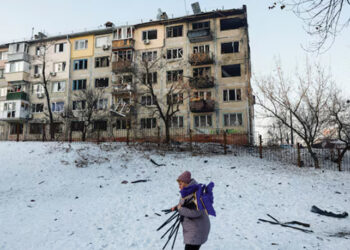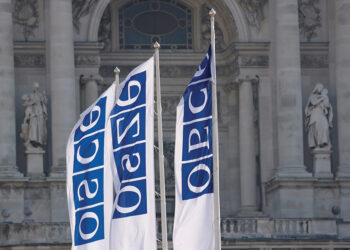The signs of rapprochement between the public and academic forces are becoming increasingly vivid in the new era of proliferating knowledge. One of the best instances of this helpful move might be that of western academia trying to popularize its scientific achievements by talking to people and letting them participate in debates.
Sakartvelo, as small and inconsequential as it might look in the eyes of the rest of the world, has an uncanny capability to emulate the well-developed world in many ways, copying the western behavioral paradigm. Just a week ago, something totally unbelievable took place within the walls of Georgia’s Academy of Sciences, corroborating the above description of our ethnic character. The stage of the Academy’s main conference hall was set intellectually ablaze when Academician Innes Merabishvili presented her brilliant talk to a full house on the issue of the famous Georgian medieval epic ‘The Knight in the Tiger’s Skin’ by Shota Rustaveli. It was a moment that saw the Georgian Academy of Sciences loudly claim its deserved niche among the vital academies of the world; ready for and capable of publicly discussing the burning issues of liberal arts and science with an intrepid sense of freedom and modernism taken together.
The gist of Professor Merabishvili’s approach was that one of the main protagonists of the poem, Nestan-Darejan, along with her beloved knight Tariel, venerated by the Georgian people throughout the centuries, were presented as deliberate plotters and executors of the unlawful elimination of another nation’s potentate’s son. This is a very nontraditional interpretation of those acclaimed characters, and it led to understandable concerns being heard from other scholars of the field. For them, Merabishvili’s argument was catastrophically off the beaten track, as in early medieval times this kind of treatment of fellow humans was a “norm.” Yet, the unrelenting professor argues that science should not refrain from telling the truth if that truth deserves daylight. She says that, otherwise, angelic Nestan-Darejan carried out an immoral act in this particular case. It was a flagrantly controversial bomb of a kind, but the audience liked the new approach to the poem’s customary reading, locked as it tends to be within the restrictive frames of literary criticism, and never tried before in the nation’s history.
How solid might the contemporary relevance of Professor Merabishvili’s argument be, the huge challenge for conservative Rustavelian scholars that it is? From the viewpoint of introducing a certain amount of flexibility into understanding Rustaveli’s masterpiece of Oriental Renascence, it might be fair to state that Merabishvili’s spirited and audacious approach makes sharp progress in the wide and significant realm of Georgian literature. A new word is always an indication of evolution, if not revolution, which we lack in the strict and stringent academic world.
The presentation was accompanied by a motley spectrum of emotional reaction to the animated presenter’s speech: The public was agog; the stern panel-moderator sounded annoyed, having prematurely left the conference; the excited podium-holders wanted to reflect their long-nursed conservative ideas in their stressful comments, vainly trying to overwhelm the leading actor of the day. Conclusively, the Academy looked rejuvenated, reinvigorated and revitalized to the extent of the attending public’s obvious elation, who interrupted the speakers with applause. On the whole, the event was asking to be evaluated as a social and cultural change that might be seen in the life of Georgian academia in the long run.
On another count, the Georgian National Academy of Sciences is a real old-timer, still alive and kicking in the erstwhile tradition of holding the learned men and women of science and liberal arts within a special club of national level, where science in general has been kept tamed and organized, the difference between then and now being that, before, the system was administered by the communist regime to keep the high-caliber soviet holders of valuable expert knowledge at bay, and today, in the era of freedom of speech and thought, intellectuals are no longer under any governmental pressure, but are still on the official payroll of the state. Notably, among the creatively thinking scholars of the country, there are quite a few like Academician Innes Merabishvili, who keep fighting with courage and determination to keep science vibrant and pulsating in the public eye.
Nugzar B. Ruhadze














